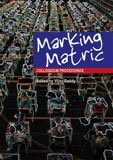
Marking Matric
Colloquium proceedings
Vijay Reddy (ed.)
210mm x 148mm
140pp
R 140.00
ISBN: 0-7969-2116-4
February 2006
![]()
Description
The past ten years in South Africa has seen many changes in education: the creation of a single department of education; common examinations for all learners in public schools in the country, a new outcomes based education curriculum which was introduced to learners in the General Education and Training Phase since 1998 and will be introduced to the Further Education and Training Phase from 2006. To evaluate the success of these changes South African researchers still use the indicator of student achievement.
The matriculation examination is the visible, high profile and public performance indicator. Every year parents, learners, teachers, researchers, government officials, policymakers, and the general public get involved in the debate around the matric examination with the most frequently asked questions being: Did the pass rate go up? Are standards dropping? Are the results real or have they been manipulated? How is our education system doing? Are we meeting the development goals? What should the matriculation examination of the future look like? To deepen the discussion the HSRC hosted a Colloquium in November 2003, with participants from government (national and provincial), Umalusi and academics (from universities and the HSRC), at which eighteen papers were presented.
This collection of papers grapples with issues regarding testing and particularly the matric examination as well as the issues of standards, reliability, validity, centralisation or decentralisation of examinations and the predictive value of examinations. In the first section, the papers outline the challenges faced by the department of education in organizing examinations, presents a history of examination, and raises methodological questions with regard to standards and standardisation. Four empirically based papers disaggregate the performance data by race and gender to illustrate the inequalities of performance, which in turn is linked to inequalities with regard to human and economic resources. The latter sections offers an analysis of social issues that have an impact on education and educational performance and the transition from school to work and higher education. In addition there is an analysis of the structure of the qualification framework that dictates how the examination in the last year of the schooling system is structured.
This unique collection of papers offers valuable research findings to academics, policy-makers and those generally involved in education.
Contents
Section 1: Macro perspective
Review of ten years of assessment and examinations T. Ndhlovu, Nkosi Sishi & C. Nuga Deliwe
Transition from senior certificate to the further education and training certificate Morgan Naidoo
The history of falling matric standards Peliwe Lolwana
Section 2: Standards and standardisation
The matriculation examination: how can we find out if standards are falling? Mbithi wa Kivilu
The statistical adjustment of matric marks L. Paul Fatti
Evaluating the school-leaving examination against measurement principles and methods: From the matriculation examination to the FETC Cheryl D. Foxcroft
Comparing and Standardising performance trends in the matric examinations using a matrix sampling design Anil Kanjee
Methodological issues in measuring learner flowthrough in the educational system Fabian Arends
Section 3: Disaggregated data illustrating inequalities
Gender and educational achievement in South Africa Helen Perry & Brahm Fleisch
Matric matters Michael Kahn
A trend analysis of matric math performance Vijay Reddy, Servaas van der Berg with Likani Lebani & Bobby Berkowitz
Education in South Africa. The matric results of 20022003: good intentions, unintended consequences and deepening inequalities: The uncomfortable truths of the Western Cape? Peter Kallaway
Section 4: Issues impacting education
Learning (dis)advantage in matriculation language classrooms Jeanne Prinsloo
Many are called, few will remain: HIV and AIDS and the matric in the South African school system Relebohile Moletsane
Listening to matric teachers: township realities and learner achievement levels Makola Collin Phurutse
Matric improvement programmes Jennifer Rault-Smith
FETC: unresolved problems Stephanie Matseleng Allais
Pathways from matric Michael Cosser
Section 5: The future
The Further Education and Training Certificate: unresolved problems - Stephanie Matseleng Allais
Pathways from matric - Michael Cosser
Reviews
Click on the links below to read the reviews:
Rapport 07 May 2006
Die Burger Kaap 08 May 2006
Rapport 07 May 2006
Cape Times 01 May 2006
Busines Day 05 April 2006 [1]
Busines Day 05 April 2006 [2]
About the Author/s
Vijay Reddy is a Research Director of the Education and School Improvement Unit in the Education, Science and Skills Development research programme of the HSRC. Dr Reddy has extensive experience in social science research, especially in the areas of research design and methodology; planning and management of large-scale surveys; and life history research.